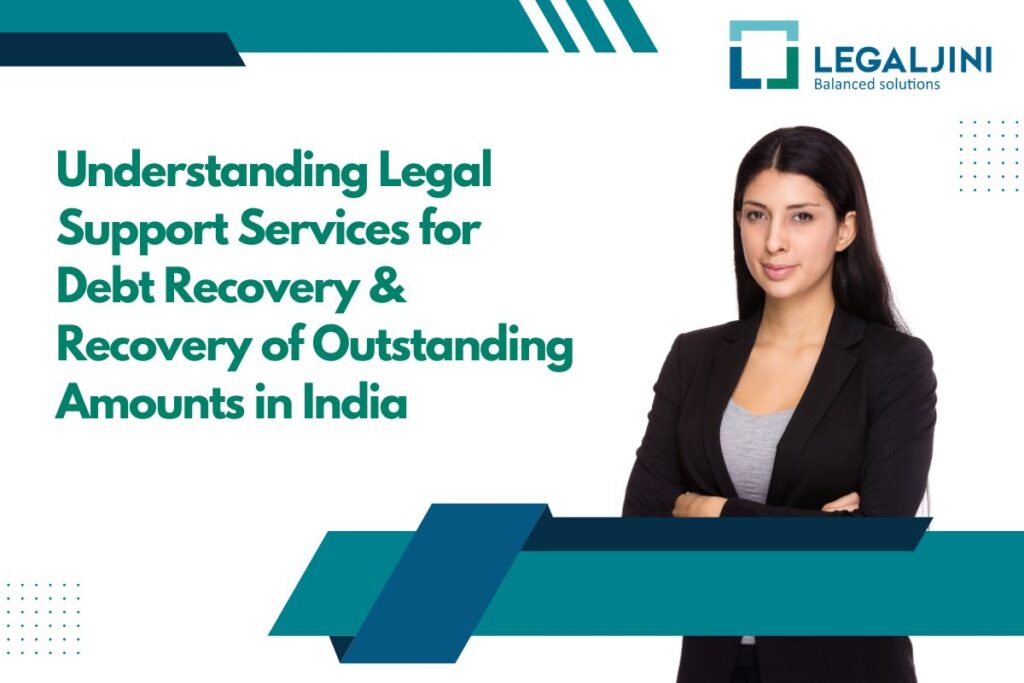
In the complex debt collection landscape, Indian citizens often find themselves grappling with financial challenges. Understanding one’s rights under the applicable debt collection laws becomes crucial in such scenarios.
This comprehensive guide sheds light on legalx support services available for debt collection in India, providing insights into the rights of Indian citizens and steps to take when faced with debt-related legal issues.
The Type of Debts: –
Broad Understanding Of Laws
1. Recovery of loans by banks and financial institutions
2. Recovery of legal dues by corporations
There are civil and criminal means of recovery of legal dues
A. Civil Remedies: –
Pre-litigation mediation through the court
B. Criminal Remedies: –
Expanding on intricacies of Debt Collection
Debt collection can manifest in various forms, each presenting unique challenges to individuals already grappling with financial strain. Understanding the nuanced aspects of debt collection ensures that individuals can make informed decisions when considering legal support services.
A. Impact on Credit Score:
B. Financial Hardship and Unforeseen Circumstances:
C. Communication Challenges:
D. Potential Legal Action and Harassment:
E. Bankruptcy Considerations:
The Need for Legal Support Services for Debt Collection
The need for legal support services for debt collection arises from the multifaceted challenges individuals encounter during the debt collection process. Whether facing constant harassment, struggling with communication barriers, or contemplating potential legal action, seeking professional guidance becomes pivotal.
This section will delve into the compelling reasons individuals might require legal assistance when navigating debt-related issues.
A. Protection Against Unfair Practices:
B. Understanding Consumer Rights:
C. Evaluation of Debt Settlement Options:
D. Communication Enhancement:
E. Preventing Legal Action and Asset Protection:
Steps to Take for Legal Support Services
Navigating the complexities of debt collection often requires a strategic and informed approach. In this section, we will outline specific steps individuals can take when seeking legal support services for debt collection, ensuring they are well-equipped to address their unique circumstances.
A. Consulting a Consumer Law Attorney:
B. Speaking with a Bankruptcy Attorney:
C. Leveraging Legal Aid Office Assistance:
D. Contacting Government Agencies:
E. Documenting Interactions with Debt Collectors:
Conclusion
As individuals look to protect themselves through the intricate landscape of debt collection, the need for legal support services becomes paramount. By understanding their rights under the FDCPA, evaluating the specific challenges they face, and taking proactive steps to seek legal assistance, individuals can navigate the complexities of debt-related legal issues with confidence.
Whether consulting consumer law or bankruptcy attorneys, reaching out to legal aid offices, or reporting violations to government agencies, individuals have a range of avenues to explore in their quest for fair treatment in debt collection matters.
In conclusion, legal support services provide a crucial lifeline for those navigating the challenges of debt collection. By being informed and proactive, individuals in India can effectively assert their rights, address unfair practices, and work towards a more equitable resolution to debt-related issues.
As we unravel the layers of debt collection complexities, it is evident that legal support services empower individuals to navigate this terrain with resilience and assert their rights confidently. Seeking professional guidance ensures that individuals are equipped with the knowledge and resources needed to tackle debt-related challenges head-on. Whether protecting against harassment, understanding consumer rights, or exploring debt settlement options, legal support services serve as a valuable ally in the journey toward financial well-being.

